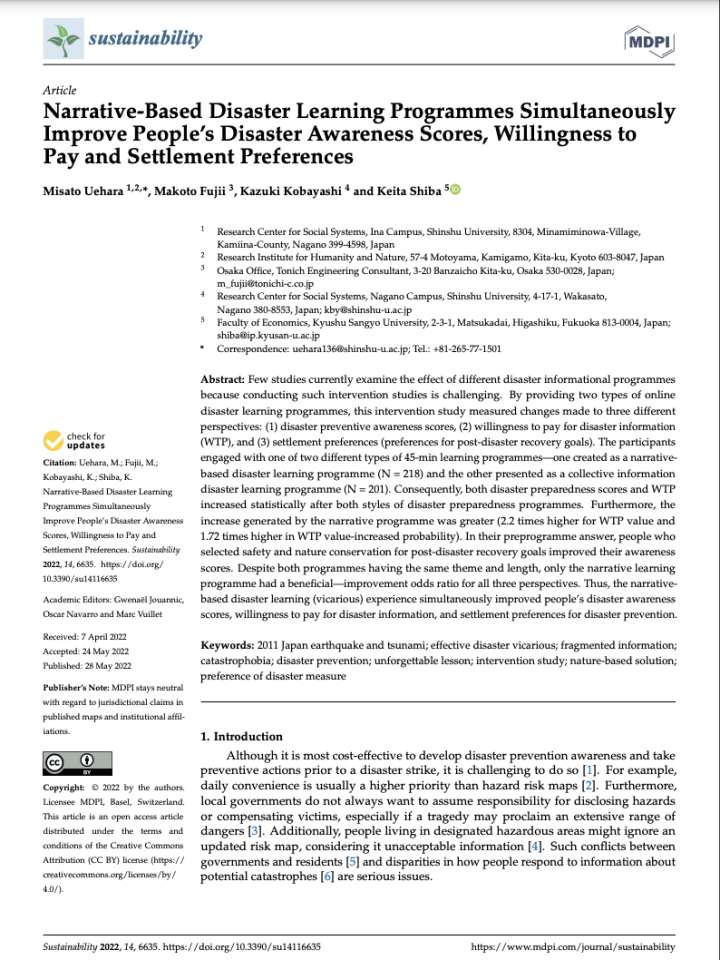Narrative-based disaster learning programmes simultaneously improve people’s disaster awareness scores, willingness to pay and settlement preferences
This study provides causal evidence, through objective measures, of the extent to which information provided by an unspecified number of people—and stories of those suffering because of a disaster—can effectively change people’s awareness of disaster prevention. To this end, this study asked participants not just about their willingness to cope with future disasters, but also their preferences for post-disaster living locations and recovery aims. This study also examined social value orientation, which assesses how people wish to distribute rewards among themselves and others, and the association between gender and residential variables.
Only the narrative learning programme had a beneficial—improvement odds ratio for all three perspectives. Thus, the narrative-based disaster learning (vicarious) experience simultaneously improved people’s disaster awareness scores, willingness to pay for disaster information, and settlement preferences for disaster prevention.
Explore further
